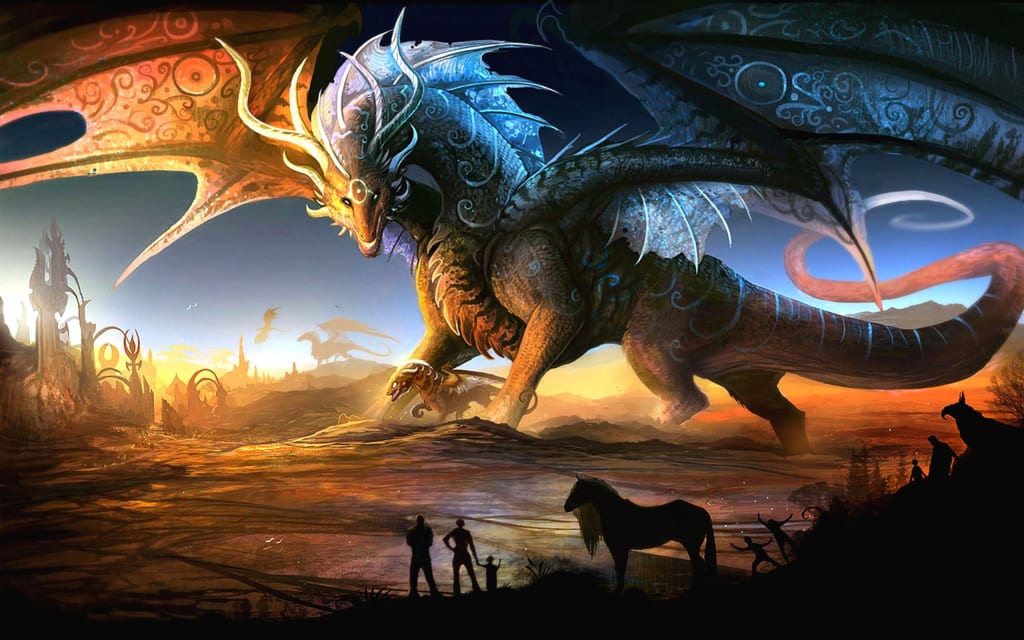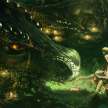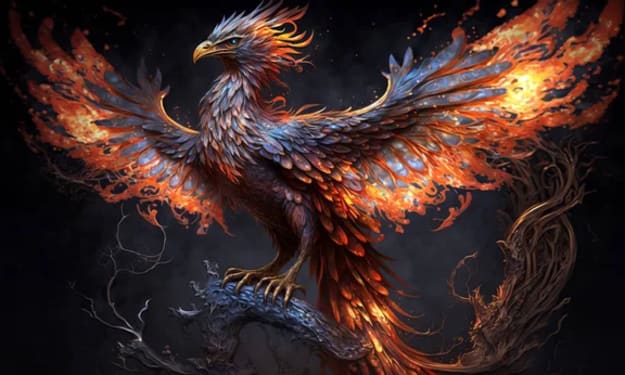Dragon Legends - TV/Game
write by sandu pathirana

"Legend of the Dragon" can refer to different things depending on the context. It might be helpful if you could provide more specific information about what you are referring to. Here are a few possibilities:
"Legend of the Dragon" (TV Series): This is an animated TV series that originally aired in 2006. It is a French animated series also known as "Legend of the Dragon Kings" or "The Legend of the Four Kings." The show follows the story of four siblings who are the guardians of the four corner regions of the world and possess dragon powers. They must defend the world from the forces of darkness and evil.
"Legend of the Dragon" (Video Game): There are several video games with this title. One notable game is "Legend of the Dragon" based on the animated TV series mentioned above. It is a fighting game where players can control characters with unique dragon powers and engage in battles.
General Mythical Dragon Legends: The phrase "Legend of the Dragon" could also be referring to various mythical stories and folklore about dragons that exist in different cultures worldwide. Dragons are often depicted as powerful, mythical creatures with significant symbolism in various myths and legends.
If you were referring to something else, please provide more context, and I'll do my best to assist you accordingly.
Of course! Let's continue exploring the topic of dragons and some of their fascinating legends and stories from different cultures:
Chinese Dragon: In Chinese mythology, dragons are considered benevolent creatures associated with good luck and prosperity. The Chinese dragon is often depicted as a long, serpentine creature with the power to control water elements. It is a symbol of imperial power and has been an important part of Chinese culture for thousands of years. According to legend, dragons were the divine rulers of ancient China and were believed to bring rain for the benefit of crops and the people.
European Dragon: In European folklore, dragons are often depicted as ferocious, fire-breathing creatures that hoard treasure and terrorize villages. They are commonly portrayed as large, winged reptiles with scales and sharp claws. Knights and heroes frequently feature in stories of battling dragons to rescue princesses or protect their kingdoms. The legend of Saint George and the Dragon is one well-known tale from European folklore.
Japanese Dragon: In Japan, dragons are seen as water deities associated with rainfall and bodies of water. Unlike their Western counterparts, Japanese dragons are typically depicted as long, serpentine beings with more benevolent traits. They are revered and respected in Japanese culture and are often featured in traditional art and festivals.
Welsh Dragon: The red dragon is the national symbol of Wales, a country in the United Kingdom. The legend of the Welsh Dragon dates back to ancient times when a battle between a white dragon (representing the Saxons) and a red dragon (symbolizing the Britons) took place. The red dragon emerged victorious, becoming a symbol of Welsh pride and identity.
Middle Eastern Dragons: In Middle Eastern mythology, dragons are often associated with chaos and destruction. They are sometimes depicted as giant serpents or monstrous creatures that must be defeated by brave heroes or gods.
Hindu and Indian Dragons: In Hindu mythology, dragons are known as "Nagas" and are revered as powerful, shape-shifting beings. They are often associated with water and are considered protectors of precious treasures.
Aztec and Mayan Dragons: In Mesoamerican cultures, dragons were seen as important symbols of power and fertility. Winged serpents, such as the Aztec god Quetzalcoatl, played significant roles in their mythologies.
These are just a few examples of the rich and diverse dragon legends found in various cultures around the world. Dragons have captured the human imagination for centuries, embodying a mix of fear, awe, and admiration. Their presence in mythology, literature, and popular culture continues to be a source of fascination and inspiration for many people.
Certainly! Let's delve further into the continued fascination and impact of dragons in various aspects of human culture:
Dragons in Literature: Dragons have been prominent in numerous works of literature across different genres. From ancient epics like "Beowulf" and "The Epic of Gilgamesh" to modern fantasy novels like J.R.R. Tolkien's "The Hobbit" and George R.R. Martin's "A Song of Ice and Fire" series (adapted into the TV series "Game of Thrones"), dragons have played significant roles in shaping the plot and themes of these stories. They often symbolize power, wisdom, danger, or a test of bravery for the protagonists.
Dragons in Modern Pop Culture: Dragons continue to be prevalent in modern pop culture, particularly in movies, TV shows, and video games. Popular franchises like "How to Train Your Dragon," "Dragonheart," and "Harry Potter" feature dragons as key characters. In video games, dragons are frequently encountered as formidable foes or mighty allies, adding excitement and challenge to gameplay.
Dragon Symbolism: Dragons hold symbolic importance beyond their mythical status. In various cultures, dragons are associated with qualities such as strength, protection, wisdom, and transformation. They often represent the primal forces of nature and the mysteries of the universe.
Dragon Festivals and Traditions: Many cultures celebrate dragon-related festivals and traditions. For example, Chinese New Year often features dragon dances, where performers carry a long dragon figure through the streets, symbolizing good luck and warding off evil spirits. These festivals are a colorful display of culture and belief.
Dragon Art and Design: Dragons have been a popular subject in art for centuries. They are depicted in paintings, sculptures, and intricate designs on pottery and textiles. Dragon motifs are often used in architecture and ornamentation, especially in structures like temples and palaces.
Dragon Names and Mythological Influences: Dragon names and characteristics frequently find their way into the broader lexicon. In many languages, the term "dragon" or its equivalent is used to describe anything impressive, fierce, or powerful. Additionally, dragon references can be found in various idioms and sayings.
Modern Interpretations and Reimagining's: As cultures evolve, so do the interpretations of dragons. In modern times, dragons have been reimagined in unique ways, blending traditional lore with creative twists. They can be portrayed as sympathetic protagonists or complex antiheroes, adding depth to their portrayal.
The enduring appeal of dragons in human culture can be attributed to their ability to tap into universal archetypes and themes. Their captivating nature and adaptability have allowed them to seamlessly integrate into different stories, beliefs, and art forms, making them a timeless symbol that continues to captivate and inspire people around the world.
.................................................................................................................






Comments
There are no comments for this story
Be the first to respond and start the conversation.